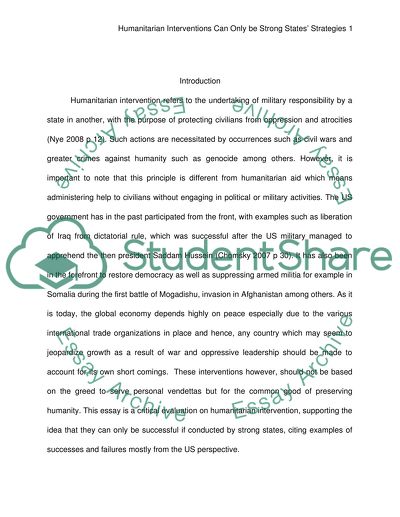Cite this document
(Humanitarian Intervention Coursework Example | Topics and Well Written Essays - 2250 words, n.d.)
Humanitarian Intervention Coursework Example | Topics and Well Written Essays - 2250 words. Retrieved from https://studentshare.org/military/1570908-humanitarian-interventions-can-only-be-strong-statess-strategies-discuss
Humanitarian Intervention Coursework Example | Topics and Well Written Essays - 2250 words. Retrieved from https://studentshare.org/military/1570908-humanitarian-interventions-can-only-be-strong-statess-strategies-discuss
(Humanitarian Intervention Coursework Example | Topics and Well Written Essays - 2250 Words)
Humanitarian Intervention Coursework Example | Topics and Well Written Essays - 2250 Words. https://studentshare.org/military/1570908-humanitarian-interventions-can-only-be-strong-statess-strategies-discuss.
Humanitarian Intervention Coursework Example | Topics and Well Written Essays - 2250 Words. https://studentshare.org/military/1570908-humanitarian-interventions-can-only-be-strong-statess-strategies-discuss.
“Humanitarian Intervention Coursework Example | Topics and Well Written Essays - 2250 Words”. https://studentshare.org/military/1570908-humanitarian-interventions-can-only-be-strong-statess-strategies-discuss.


